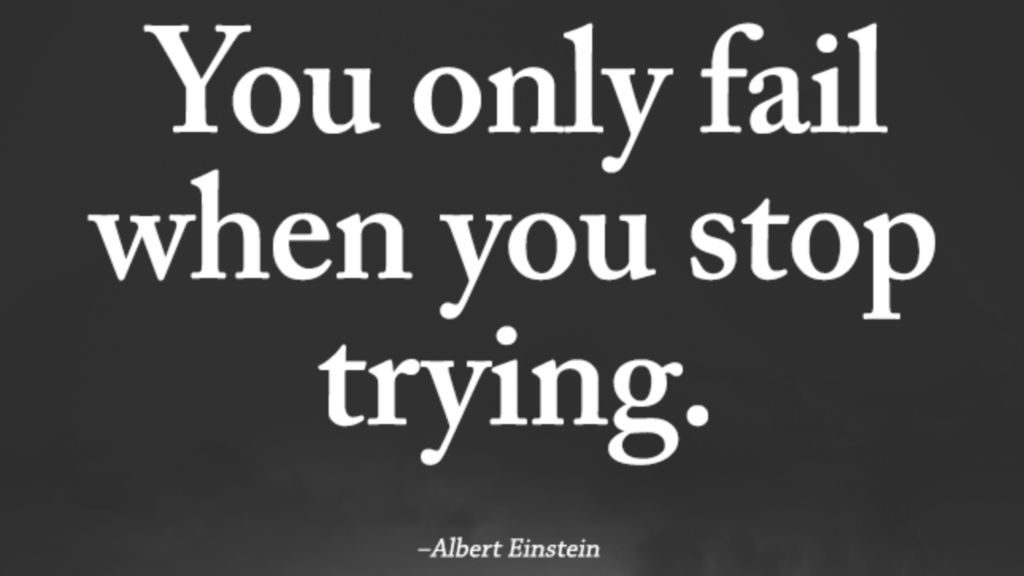Have you ever tried to solve a problem only to be overwhelmed by a feeling of anxiety and worry to the point that you can’t find any solutions? Are you trying to become a better problem solver instead of worrying?
Worry is incredibly powerful and can mentally sabotage you, preventing any forward momentum.
The good news is that you can learn to transform habits fueled by anxiety into productive and effective ones. All it takes is a little effort and some courage, but that’s harder to do than it seems. Regardless, seven habits will turn you from a worrier into a problem-solver.
1. Become a Problem Solver by Defining Problems Accurately
Problems can feel overwhelming if you don’t define them, and worse still, even if you don’t feel overwhelmed by them, a lack of proper definition can lead to you addressing the wrong issue. Irrelevant information is one of the key things that gets in the way of positive problem-solving, even in straightforward situations.
To get to a problem’s root, you must know exactly what’s happening. Dig deep, beyond the surface level, to find the real reason behind an issue. One way to do this is via the “5 whys” procedure. It involves asking “why” repeatedly to the problem, progressively moving from point to point until you find the answer. For example:
Initial Problem: My work is of low quality.
- Why 1: Why do I always end up submitting low-quality work? It’s because I procrastinate.
- Why 2: Why do I procrastinate? I don’t feel motivated to do anything until the last minute.
- Why 3: Why am I not motivated until the last minute? Work stresses me out, so I don’t want to do it.
- Why 4: Why does work stress me out? I find it overwhelming.
- Why 5: Why do I find work overwhelming? There’s too much piling up all at once.
Problem Definition: I feel overwhelmed by large amounts of work, so I procrastinate until it’s too late to do high-quality work.
Solution: I should break down work tasks into small mini-goals so they feel more manageable.
Finding the root of the problem empowers you and your problem-solving ability, preventing anxiety and worry from taking root. It shows you that you can break down any issue into its bare bones and find the solution for them, just with a few “why”s!
2. Learning Positive Communication
Worriers tend to be poor communicators, as they spend their time trying their best to avoid being implicated and tend to shut down to prevent additional anxiety. If you want to be a problem-solver, you’ll want to communicate well with others. After all, sometimes you have more positive results from collaborative problem-solving efforts!
This is because many problems involve other people. Miscommunications, misunderstandings, and disagreements can all lead to issues and difficult situations. To resolve these circumstances, your communication skills have to be on point. Here are some habits to internalize to improve communication from problem-solving:
· Listen Effectively
Good problem-solvers practice effective listening techniques and habits. They use empathy and put themselves in the shoes of others to genuinely understand where they’re coming from. Most importantly, they give people the benefit of the doubt and acknowledge others’ statements, never invalidating them.
· Communicate Well
Verbal and nonverbal communication are both crucial for problem-solving in groups. Learning to articulate your thoughts in non-accusatory, positive ways while maintaining open and neutral body language is crucial. It takes some practice, but you can start by using “I” statements, such as “I feel…”, “I think…”, and “I believe…”.
· Don’t Pass Blame
Pointing fingers to others is a way to heighten tensions without finding solutions. People are naturally defensive when accused, and tossing responsibility back and forth instead of taking ownership and accountability will only delay problem-solving. Admit where you went wrong, don’t make problems for others, and go for finding solutions instead of picking new fights.
3. Creating Uncertainty
Certainty is comfortable. But it’s certainly not helpful. Worriers often create a space that is only comfortable for them, and they stay within the inner realms of their comfort zone forever. It’s an endless cycle of fear, and it makes sense – situations of uncertainty can activate stress responses.
Unfortunately, knowing everything is impossible because it’s impossible to control life and the world. But that only contributes further to the fear that worriers feel. The more they try to control their comfort zone, the more everyday, unavoidable moments of anxiety creep up on them and drive them further into hiding.
That’s why problem-solvers don’t just learn to get comfortable with things that aren’t comfortable. More than just that, they actually go out of their way to create instances of uncertainty. They enjoy challenges because it puts their minds to the test, making them much more adept at handling problems when they come up outside of their control.
Learning to feel comfortable in uncertainty to the point that you seek to create it sounds unusual. But that also gives you many experiences you would otherwise be afraid of. You get to actively pursue things you’re usually too frightened to do because you’re looking for uncertainty everywhere anyway – why not thrive in it, also?
4. Expanding Options
Narrow-minded thinking is a killer for problem-solving. To find genuine solutions, you need to be able to consider things outside of your typical paradigm. Worriers spend a lot of time in their own little bubbles, and you need to have a much broader concept of solution-finding if you want actually to solve problems. Here are some ways to do so:
· List Down Multiple Solutions
When you brainstorm, list out as many solutions as possible, even ones that don’t seem worth it at first. Don’t feel silly for writing absolutely everything; you can cut down unusable ones pretty quickly after the brainstorming session.
· Explore Other Ideas
Your initial thoughts may seem like the obvious answer, but some things thinking about other perspectives and ideas can provide more innovative choices. Talking to other people, thinking outside the box, and properly considering all angles is a great way to expand your possible options. Without thinking about alternative ideas, you wind up repeatedly stuck in patterns of doing the same thing, which can worsen your worry.
· Do Some Reverse Engineering
Thinking backward is a surprisingly good way to transform worry into productivity. Essentially, it allows you to visualize the desired outcome, thus improving positive thinking and decreasing anxiety. Then, you can work your way backward from that outcome to find the steps that lead to it.
5. Believing In Improvement With A Growth Mindset
Worriers tend to catastrophize. Everything feels like the end of the world to them, making it hard to see any light at the end of the tunnel. It’s a common experience for those with depressive and anxiety disorders. The reduced positive thinking from this catastrophizing can form an unhealthy cycle where you don’t try to improve because you think it’s all worthless.
A fixed mindset is a mindset where individuals believe that circumstances are static and unchangeable or cannot do anything to improve them. It also denotes closed-mindedness, where a worrier will not be open to learning from misfortune or expanding their ideas based on new information.
On the other hand, a growth mindset is one that involves a belief in improvement. It denotes someone willing to learn as they go, hone different skill sets, and eagerly confront problems and solve them. Then, once the issue has passed, they know from the experience and improve themselves.
Worriers have a fixed mindset. Problem-solvers have a growth mindset instead and will always seek improvement. If you find opportunities to learn and grow even in difficult situations, you’ll be much better at handling and finding solutions to adverse conditions.
6. Reducing Ego
Ego prevents you from solving problems because it puts you in a high-and-mighty position. This means you:
- Aren’t open to learning new things
- Refuse to accept your part in problems
- Insist that your methods are best, even when they aren’t
- Deny the existence of problems, to begin with
- Need to be right constantly
But what does this have to do with worrying? High levels of ego are often related to some form of a defensive mechanism. A lot of people use protectively high egos as a method of managing anxieties. If this describes you, then know that this ego is actually getting in the way of your learning process.
7. Become a Problem Solver by Reframing Hurdles
Problems are common in life, and worriers tend to become bogged down by them. The trick to handling them is simple: learn to reframe them! Of course, it’s easier said than done, but that’s a valuable habit of learning if you want to get better at solving problems.
Worriers, when they run into problems – especially those they feel responsible for – may feel like they are failures or as if they have failed. They may experience emotions like:
- Anxiety
- Fear
- Frustration
- Guilt
- Inadequacy
- Shame
But when you approach problems with positive thinking, you’ll be able to come out of those bad feelings and view the situation realistically, thus allowing you to be better at handling them naturally. Instead of sinking into a negative pattern, when you see issues crop up, learn to frame them in new ways. So say to yourself:
- That didn’t work; what else can I try?
- I should ask for help so I can learn from others.
- That went poorly; how can I avoid a recurrence?
- That didn’t go to plan; how can I learn from this?
- This is difficult for me, but the challenge will help me grow.
Final Thoughts On Some Habits To Adopt To Become A Problem Solver
Worrying can be all-consuming and allowing yourself to control it can lead to difficulties in everyday life. Sometimes, problems can become more significant and more troublesome if you’re filled with anxiety. Adopting habits that turn worries into solutions is a beneficial skill, so learn these habits, and you’ll be much better at finding innovative, effective ways to overcome hurdles in the road!



















